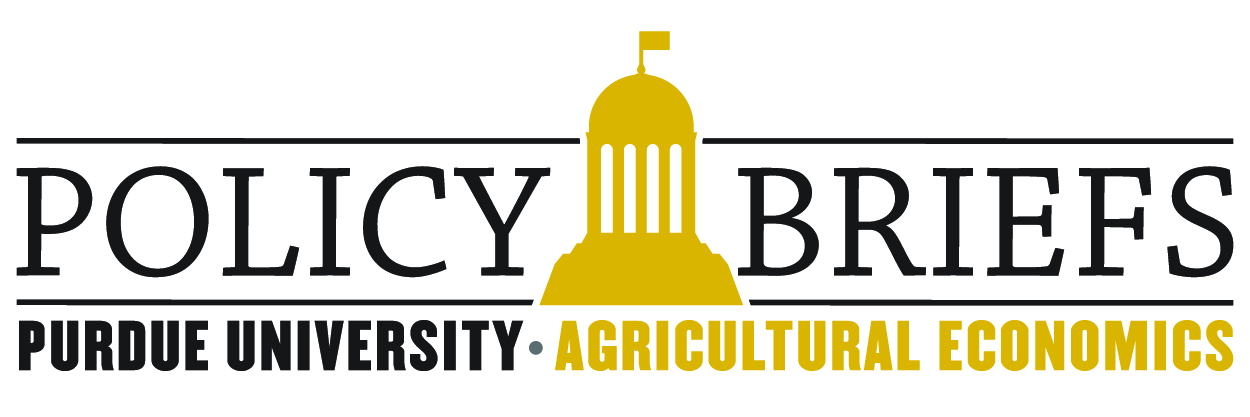
Policy Briefs by the Purdue Agricultural Economics Department aims to provide short insights, readable for the general public, on policy issues that are national in scope with an Indiana flare. We were initially motivated by the need to provide timely analysis in the lead up to 2018 Farm Bill discussions. However, the breadth of expertise in our department and the ongoing policy discussions related to farm, food, environment, trade, and development issues warrants a longer view and broader scope. The department hopes to enrich policy debates by providing data and context, quantifying impacts, and offering alternatives.
Roman Keeney, Associate Professor of Agricultural Economics
Roman Keeney, Associate Professor of Agricultural Economics
Roman Keeney, Associate Professor of Agricultural Economics
Roman Keeney, Associate Professor of Agricultural Economics
Roman Keeney, Associate Professor of Agricultural Economics
Roman Keeney, Associate Professor of Agricultural Economics
Roman Keeney, Associate Professor of Agricultural Economics
Roman Keeney, Associate Professor of Agricultural Economics
Roman Keeney, Associate Professor of Agricultural Economics
Russell Hillberry, Professor of Agricultural Economics
Roman Keeney, Associate Professor
Pedro Antonio Diaz Cachay, Masters Student; Dr. Todd Kuethe, Associate Professor and Schrader Endowed Chair in Farmland Economics
Hari P. Regmi, Ph.D. Student; and Todd H. Kuethe, Associate Professor and Schrader Endowed Chair in Farmland Economics
Haden Comstock, M.S. Student; Nathan DeLay, Assistant Professor
Carlos Zurita, Doctoral Candidate
Megan N. Hughes, Ph.D. Student Agricultural Economics; Olivia Wyrick, Student Natural Resources and Environmental Sciences; Carson J. Reeling, Associate Professor; and Meilin Ma, Assistant Professor
Larry DeBoer, Agricultural Economics Professor Emeritus
Author: Russell Hillberry, Professor of Agricultural Economics
Author: Roman Keeney, Associate Professor of Agricultural Economics
Authors: Maksym Chepeliev, Research Economist; and Dominique van der Mensbrugghe, Director and Research Professor
